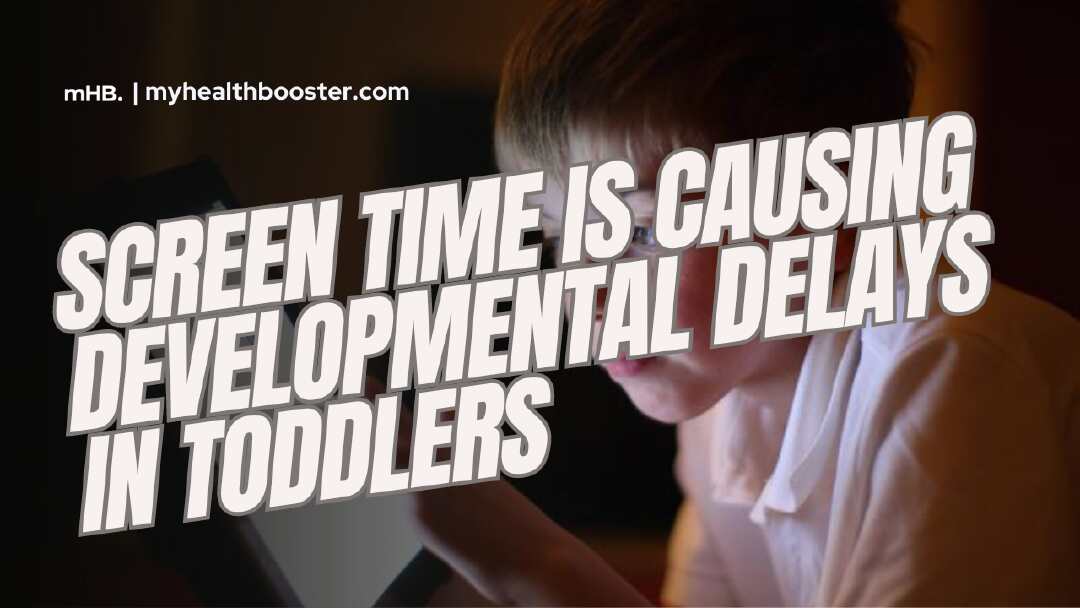A new study has found that handing your baby a mobile phone or tablet to play with as a means of consoling or entertaining them may be a harmful solution. Experts say this unhealthy screen time could quickly affect their development.
A study of 7,097 children which was published in the journal JAMA Pediatrics has revealed that spending about one to four hours of screen time per day at age 1 is linked with greater risks of developmental delays in social skills, communication, problem-solving and personal skills by age 2.
The published paper was based on a case study that captured mothers and their children in the Japan-based Tohoku Medical Megabank Project Birth and Three-Generation Cohort Study of 50 obstetric clinics and hospitals in the Miyagi and Iwate prefectures between July 2013 and March 2017.
The research team employed self-reports of mothers of the children under study to take their measurements. They measured how many hours children used screens per day at age 1 and how they performed in several selected developmental domains — communication skills, fine motor skills, personal and social skills, and problem-solving skills — at ages 2 and 4.
Reviewing the research paper
According to the paper’s findings; by age 2, babies who had had up to four hours of screen time per day were up to three times more likely to experience developmental delays in communication and problem-solving skills.
And those who had spent four or more hours with screens were 4.78 times more likely to have underdeveloped communication skills, 1.74 times more likely to have subpar fine motor skills and two times more likely to have underdeveloped personal and social skills by age 2. However, by age 4, risk remained only in the communication and problem-solving categories.
“Kids learn how to talk if they’re encouraged to talk, and very often, if they’re just watching a screen, they’re not having an opportunity to practice talking. They may hear a lot of words, but they’re not practicing saying a lot of words or having a lot of that back-and-forth interaction.”
“Also, (with) passive screen viewing that doesn’t have an interactive or physical component, children are more likely to be sedentary and then aren’t able to practice motor skills,” said Dr. Jason Nagata who is an associate professor of pediatrics at the University of California, San Francisco. His remarks are unbiased as he wasn’t involved in the study.
How screen time may affect development in toddlers
Dr. John Hutton, associate professor of general and community pediatrics at Cincinnati Children’s Hospital Medical Center while reviewing the published papers has said that the potential harmful effects of screen time on communication skills of children may be as a result of them being robbed of the drivers for language development.
“Kids learn how to talk if they’re encouraged to talk, and very often, if they’re just watching a screen, they’re not having an opportunity to practice talking. They may hear a lot of words, but they’re not practicing saying a lot of words or having a lot of that back-and-forth interaction,” he said.
Other experts in pediatrics are also saying that if children are deprived of enough time to play or are pacified with tablets and mobile phones during stressful times, it could prevent them from developing the ability to navigate discomfort.
However, other experts claim the study presents some limitations because certain parents may underreport their child’s screen time and overreport how their child is doing developmentally. Also, other factors like genetics, adverse experiences such as neglect or abuse, and socioeconomic factors, can affect a child’s development.
What are the healthier ways to occupy children?
In your attempt to keep your children busy, experts advice you engage them with books, coloring materials or toys. Others also recommend opting for educational content or video chats with a loved one so they can still get some social interaction, when you cannot completely do away with phones and tablets.
